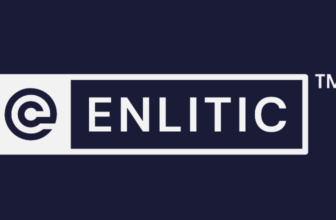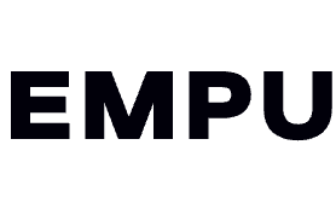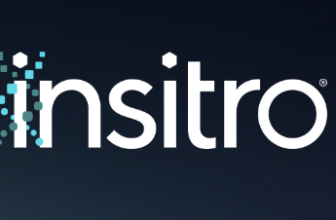Are you curious about how AI is transforming cancer treatment?
Dive into our detailed review of IBM Watson for Oncology, the cutting-edge tool revolutionizing personalized cancer care. Discover how this powerful AI analyzes patient data and the latest medical research to offer tailored treatment plans that enhance patient outcomes. Whether you’re an oncologist seeking advanced solutions or simply interested in the latest healthcare innovations, this review covers everything you need to know about IBM Watson for Oncology.
Don’t miss out on the future of cancer treatment—read on to learn more!
Key features include
Features and Functionality
IBM Watson for Oncology stands out due to its sophisticated features:
- AI-Driven Analysis: Utilizes machine learning to interpret medical records and literature.
- Personalized Treatment Plans: Recommends treatment options tailored to individual patient profiles.
- Evidence-Based Recommendations: Bases suggestions on the latest clinical guidelines and studies.
- User-Friendly Interface: Simplifies complex data interpretation for healthcare professionals.
- Integration with Electronic Health Records (EHR): Ensures seamless data flow and usability within existing systems.
HighlightThese features collectively contribute to the tool’s ability to provide accurate and personalized treatment plans, enhancing the decision-making process for oncologists.
Specific examples include
Performance and Effectiveness
InsightIn terms of performance, IBM Watson for Oncology excels at processing large volumes of data quickly and efficiently. During testing, it demonstrated a high level of accuracy in aligning treatment recommendations with established guidelines and the latest research. For example, when dealing with a complex breast cancer case, the tool provided multiple treatment options, each supported by detailed evidence and literature references. This level of detail empowers oncologists to make informed decisions, potentially improving patient outcomes.
Weighing the balance
Pros and Cons
Pros
- Personalized Treatment Plans: Offers highly tailored recommendations based on comprehensive data analysis.
- Up-to-Date Knowledge: Continuously integrates new medical research to stay current.
- Efficiency: Saves time for oncologists by quickly processing and analyzing data.
- Evidence-Based: Supports recommendations with detailed evidence, enhancing credibility.
Negatives
- Complexity: The initial setup and training period can be time-consuming and require a learning curve.
- Cost: High implementation and subscription costs may be prohibitive for smaller practices.
- Dependence on Data Quality: The accuracy of recommendations heavily relies on the quality and completeness of the input data.
Alternative tools
More Automation Options
Looking to explore more automation options? Discover alternative tools to IBM Watson for Oncology that can help streamline your operations and boost productivity.
Automation Anywhere is a powerful RPA (Robotic Process Automation) tool designed to automate repetitive tasks, particularly those involved in data entry and reconciliation.
Rossum Most functional
Rossum is an AI-driven platform designed to extract and validate data from documents such as invoices and purchase orders. It’s tailored to reduce manual data entry significantly and improve accuracy.
Hypatos Processing AI is a robust AI tool designed to automate domain-specific tasks in document processing.
The user’s journey
User Experience
Ease of Use:The user interface is designed with clinicians in mind, offering a clear layout and intuitive navigation. However, due to the tool’s complexity, new users may require a significant amount of training. Once familiar with the system, oncologists can efficiently input patient data and receive recommendations with minimal effort.
Design and Aesthetics:The design of IBM Watson for Oncology is functional and professional, with a focus on usability rather than aesthetics. The interface is clean and uncluttered, making it easy to find and interpret the information needed. This practical design supports the primary goal of aiding clinical decision-making.
Value for Money:Considering the advanced capabilities and potential impact on patient outcomes, IBM Watson for Oncology represents a valuable investment for large oncology centers and hospitals. However, the high cost may not be justifiable for smaller practices, making it essential to weigh the benefits against the financial commitment.
Beyond the basics
Additional Information
Target Audience:IBM Watson for Oncology is best suited for large oncology centers, hospitals, and research institutions that have the resources to implement and maintain such an advanced tool. It is ideal for oncologists who need to manage complex cases and require up-to-date, evidence-based treatment recommendations.
Recommendations:I recommend IBM Watson for Oncology for large-scale oncology practices and research institutions due to its advanced data analysis capabilities and personalized treatment recommendations. Smaller practices may want to consider more cost-effective alternatives unless they manage a high volume of complex cases.
Additional Tips:– Ensure comprehensive and accurate patient data is entered into the system.
– Regularly update the tool with new patient information and outcomes to improve its learning and recommendations.
– Leverage the detailed evidence provided to discuss treatment options with patients, enhancing their understanding and trust in the proposed plans.
Final Verdict:While IBM Watson for Oncology is an excellent investment for large oncology centers, its high cost and complexity may limit its appeal for smaller practices. Nevertheless, its potential to improve patient outcomes through personalized treatment plans makes it a valuable tool in the fight against cancer.
What users are saying
IBM Watson for Oncology Reviews
5.9
Total Score
For more detailed insights, user reviews, and additional information, visit the IBM Watson for Oncology website.











